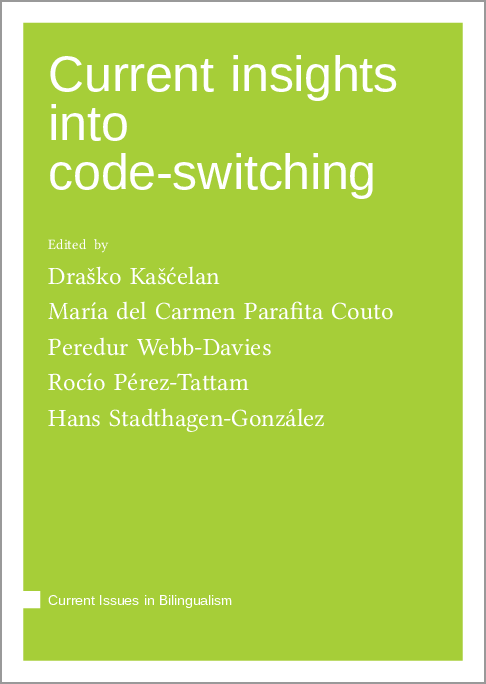We log anonymous usage statistics. Please read the privacy information for details.
Forthcoming: Current insights into code-switching
Synopsis
This volume presents a series of studies and reviews that provide insights into grammatical variation and the development of code-switching in neurotypical speakers, as well as into language mixing practices among individuals with neurodevelopmental conditions. Across seven chapters, a range of themes is explored, including: community norms and language practices, the influence of caregivers on bilingual development, attitudes and ideologies surrounding bilingualism, code-switching as a communicative resource, and the intersection of neurodiversity and bilingualism. By offering up-to-date perspectives on these topics, the volume builds on existing research into code-switching, such as work by Margaret Deuchar, and it highlights open data initiatives for advancing future research in this area.
Chapters
-
Code-switching in contextVariation, processing, and development
-
Code-mixing and language changeEvidence from Spanish nouns in heritage Piedmontese
-
Verinaiss ‘very nice’The integration of English in Estonian teenagers’ instant messages
-
Cued gender assignment strategies and L1 effects in the acceptance of mixed Basque-Spanish DPs
-
Sensitivity to codeswitching asymmetries in second language sentence processing
-
Linguistic interaction in early bilingual developmentA review of studies examining single- and mixed-language utterances
-
Supporting bilingual development through code-switchingDual language use of a grandmother and an emergent bilingual child
-
Code-switching by individuals with neurodevelopmental conditionsA scoping review



